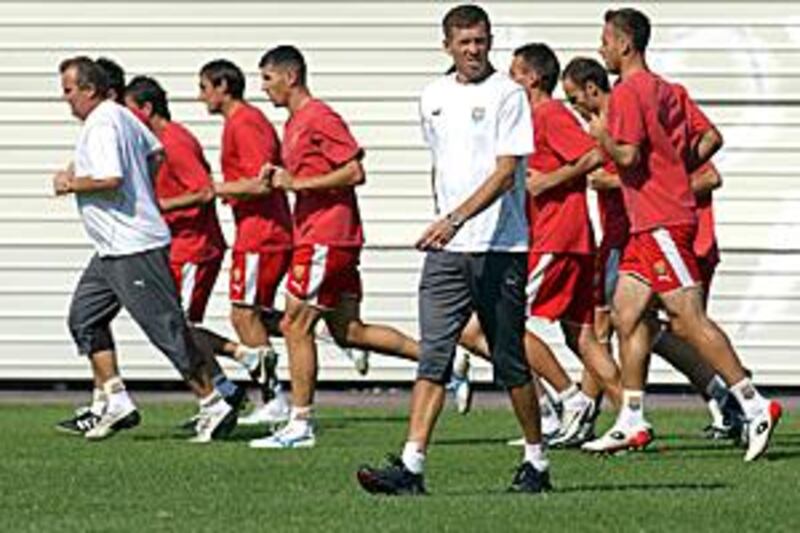As epitaphs go, most people would probably hope for something rather better than "You're a useless coach and you were a useless player". Srecko Katanec, who is poised to be named the UAE manager, certainly deserves better but, as even he accepts, unless he achieves something truly remarkable, he is stuck with it, particularly given the similarities between his departures from the Slovenia and Macedonia jobs.
His six years in charge of Slovenia brought success that had previously been unthinkable for what the rest of Yugoslavia had commonly dismissed as "a nation of skiers". "I took over the Slovenia when it wasn't even a small dot on the football map of Europe," he said, "but after some hard work and some luck we qualified for Euro 2000 and the World Cup in 2002." Katanec's misfortune is that the successes of his reign will always be overshadowed by its tumultuous end, as Zlatko Zahovic launched a bitter character assassination that led to his expulsion from the squad.With him went morale, and, after three defeats, Slovenia's first World Cup ended with recriminations, a tearful press-conference and Katanec's resignation. Katanec later compared the falling-out to a failed marriage, suggesting he and Zahovic were two very different characters initially bound together by common interest who shifted gradually further apart until the cataclysmic final battle in the spotlight of Jeju.
Those differences were partly regional - the Ljubljana-Maribor rivalry remains divisive across all walks of life in Slovenia - but more to do with differing philosophies of how football should be played. As a player, Katanec was a dogged anchor-man, good enough to play in a European Cup final with Sampdoria and a Uefa Cup final with Stuttgart, and he carried those virtues into management. "My motto is work, order and discipline," Katanec said. "That is how you reach your targets."
Zahovic, meanwhile, was an individualistic talent who was all too aware of being the best player in the Slovenian squad. Eventually, furious at being substituted for Milenko Acimovic - a Ljubljancan, as he was swift to point out - in the opening defeat to Spain, Zahovic cracked, and six years of frustration came seething out. Given Zahovic's history of prickliness and the reality that a nation of Slovenia's limited stature has to focus on organisation, most neutrals then had sympathy.
The problem, though, is that his time in charge of Macedonia ended in similar fashion. He instilled discipline and resolve, providing a platform for Goran Pandev, the Lazio playmaker who, like Zahovic, stood head and shoulders above his teammates - and they achieved some notable results, drawing 0-0 with England at Old Trafford, and beating both Croatia and Scotland at home. Although they were never in contention to qualify for Euro 2008, second place in their World Cup qualifying group was a possibility, even after a 4-0 defeat to the Netherlands in March. And then, unexpectedly, Katanec quit.
"I didn't quit because of the 4-0 defeat," Katanec told his farewell press-conference. "I resigned because of a nasty face-to-face with Pandev who created discontent among the squad." To fall out with one star player is unfortunate; to fall out with a second begins to look like a pattern. Given the nature of the squad, a similarly tempestuous ending is unlikely, but what UAE's players can be sure of is that Katanec will organise them, will demand absolute obedience and that they will work harder than they have ever worked before; his wiry physique suggests just how much, even at 45, he relishes punishing cross-country runs.
There will be no mercy for those who break curfew, and certainly none for anybody withdrawing from the squad to sort out their wedding. And there will certainly be no more McDonald's. jwilson@thenational.ae





